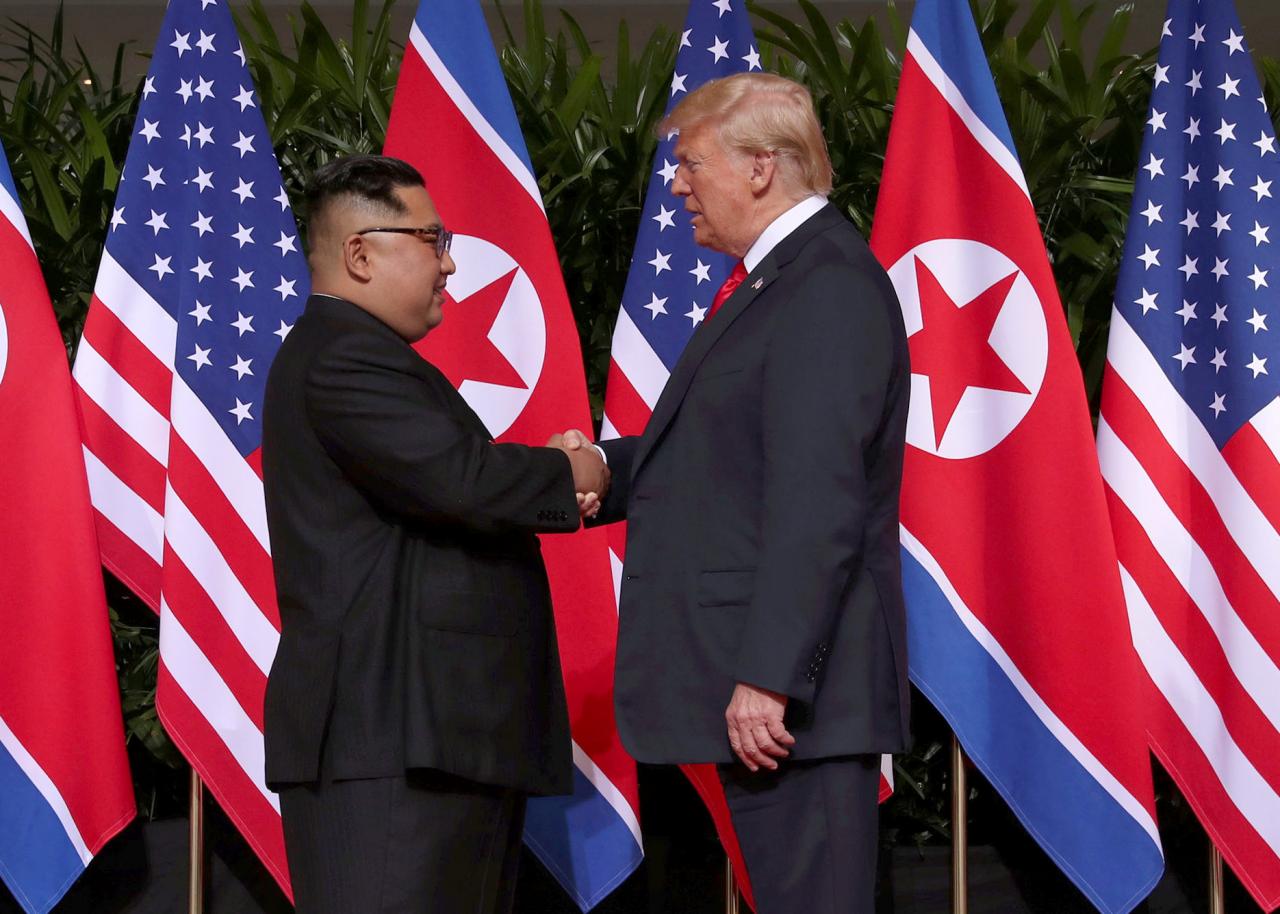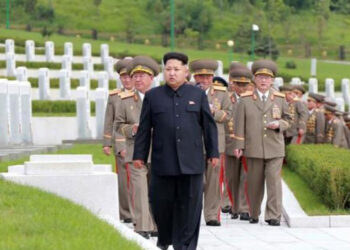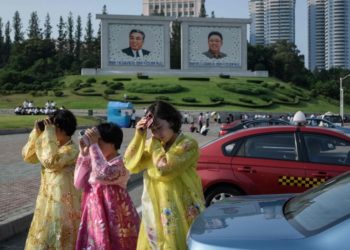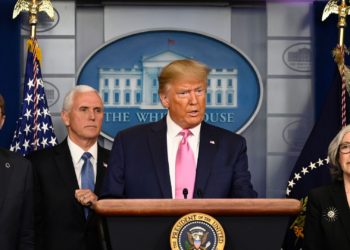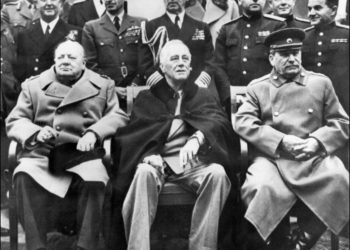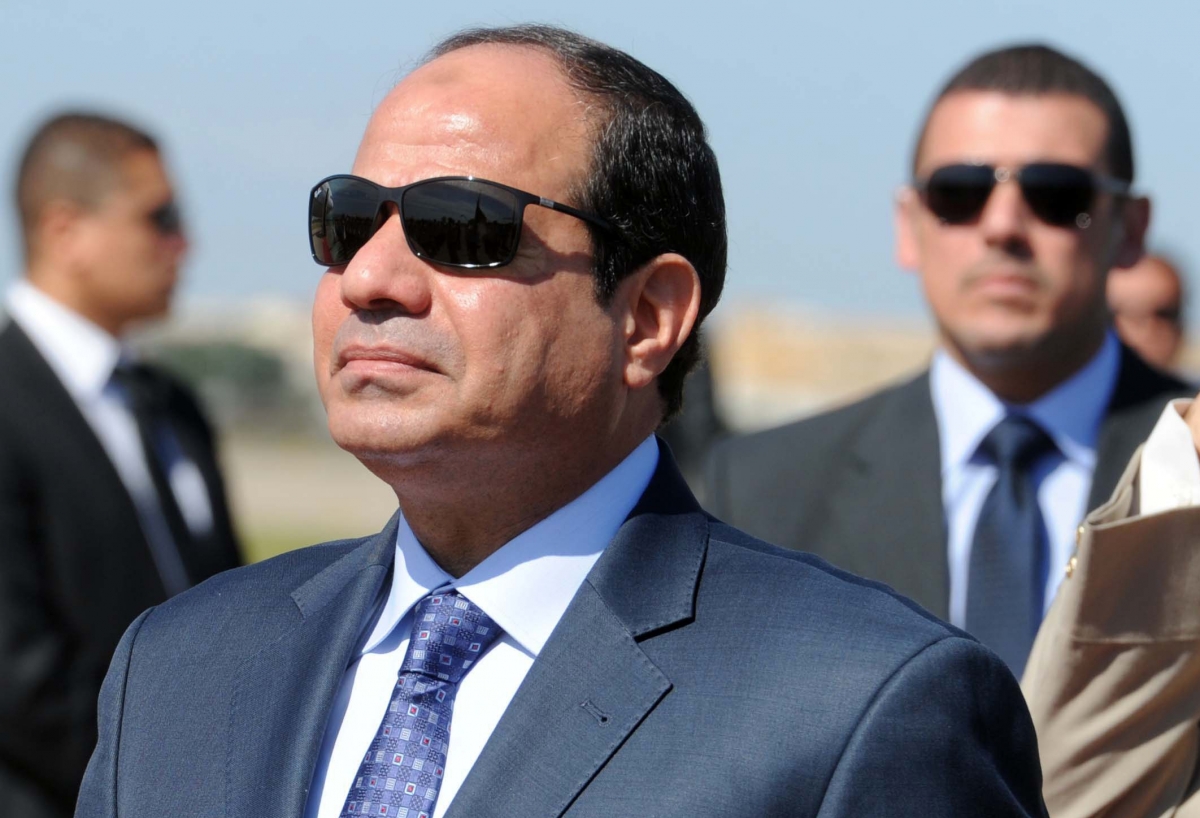As U.S. President Donald Trump prepares to travel to Vietnam Monday for a summit with North Korea’s Kim Jong Un, a new report from the Red Cross found that North Korean food production was at a ten-year low in 2018.
The report raises fears that the country’s most vulnerable – children, mothers, the elderly, and those with medical issues – may be at risk for malnutrition and other health problems.
Experts believe that the worst effects of the low harvest will be felt during the “lean season” – which lasts from May to September.
In 2018, North Korea suffered several climate-related disasters, including a heatwave, a dry spell, a typhoon, floods, and landslides.
In an effort to mitigate the country’s food shortages, the Red Cross is operating about 100 greenhouses across North Korea, producing a variety of vegetables that can be harvested all year around.
More than 10 million people – 41 percent of the population – are currently in need of humanitarian aid, the organization estimates.
An End to the Korean War?
Trump is scheduled to depart the White House Monday around noon en route to Hanoi where he is scheduled to meet with Kim for a second time since taking office.
Though Trump made history as the first president to meet a leader of North Korea, the first summit in Singapore in June, 2018 resulted in only a non-binding agreement.
Hopes that Donald Trump and Kim Jong Un will formally declare an end to the 1950-53 Korean War at the summit rose Monday after South Korea said the two leaders could reach an agreement.
The devastating conflict between communist North Korea, backed by China, and the capitalist South, aided by the United States, ended with an armistice rather than a peace treaty, leaving Pyongyang and Washington still technically at war.
WATCH: Jake Tapper calls out Pompeo over Trump declaring North Korea no longer a nuclear threat https://t.co/v8sxaRUqMy pic.twitter.com/S1ZgIKc78m
— The Hill (@thehill) February 25, 2019
“I believe that the possibility is there,” the South’s presidential Blue House spokesman Kim Eui-kyeom told reporters about a formal declaration.
“There is no way of knowing what kind of declaration it might be, but I believe the U.S. and North Korea may reach an agreement.”
President Moon Jae-in said in October “it was only a matter of time” before Washington and Pyongyang declared an end to the war.
The U.S. has also struck an upbeat tone. Stephen Biegun, the U.S. special envoy for North Korea, said earlier this month that Trump was “ready to end this war,” fuelling speculation that the formal end of the conflict may be near.
But Blue House spokesman Kim said even if the US and North Korean leaders declare the end of the Korean War, a formal peace treaty will likely be signed at the “last stage of the denuclearization process” of the Korean peninsula – and may take a long time to materialize.
“A peace treaty and a declaration of end of war are different,” he said, adding that the treaty must be a “multilateral effort” involving South Korea and China.
More on the Subject
U.N. chief Antonio Guterres warned in December that “much worse” lay in store for Yemen in 2019 unless its warring parties strike a peace deal and head off a humanitarian crisis.
A high number of Yemenis have been dying in “very dramatic circumstances” as a result of food shortages, Guterres told a news conference in Doha.
The United Nations on Thursday brokered a ceasefire accord between the internationally-recognized government and Iran-aligned Huthi rebels to end hostilities in the flashpoint port city of Hodeida.


